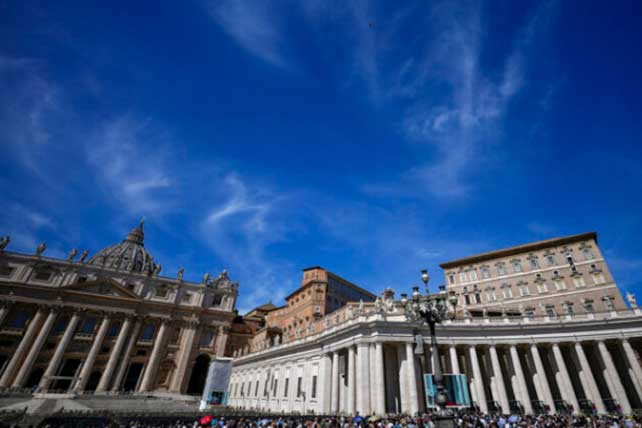This time, representatives of the working groups will also be divided into five language groups, where they will have a chance to share their insights with other synod participants. Following prayerful discussions, interrupted by meditations and organized to promote “careful listening,” the working groups will draft a report. Once the reports are summarized into a final document, all participants will vote on the topics it presents.
The Vatican’s synod secretariat will work with theologians, canon lawyers and other experts to draft the final document. Grech seemed to suggest that the synod will be followed by an apostolic exhortation by Pope Francis that would reflect, and possibly expand, on the main topics it addressed.
Not every issue that was raised during the first synod assembly will be discussed at the October summit, including debates on LGBTQ inclusion and allowing women to be ordained as deacons, who can preach the homily and administer some of the sacraments. Pope Francis created 10 theological committees to address these issues and present the results in 2025. A male and female representative of the committees will present their current reflections before the synod on Oct. 2 and in four forums scheduled Oct. 9 and Oct. 16.
“These 10 topics have not been cast aside,” Grech told journalists. “The Holy Father has accepted the questions of the assembly of the first session, but these are themes that require further theological reflection.”
While some faithful have lamented the fact that hot-button issues will not be discussed at the October summit, the synod has made an attempt to promote transparency by allowing journalists and the general public to attend the theological forums and ask questions.
Pope Francis asked participants of the 2023 synod to “fast” from spreading news and information about the discussions. Despite some signs of openness in the second session, the rules of the synod still bind participants to confidentiality and ask that they refrain from spreading any information about the discussions “even after the Synodal Assembly has ended.”
This article originally appeared here.

